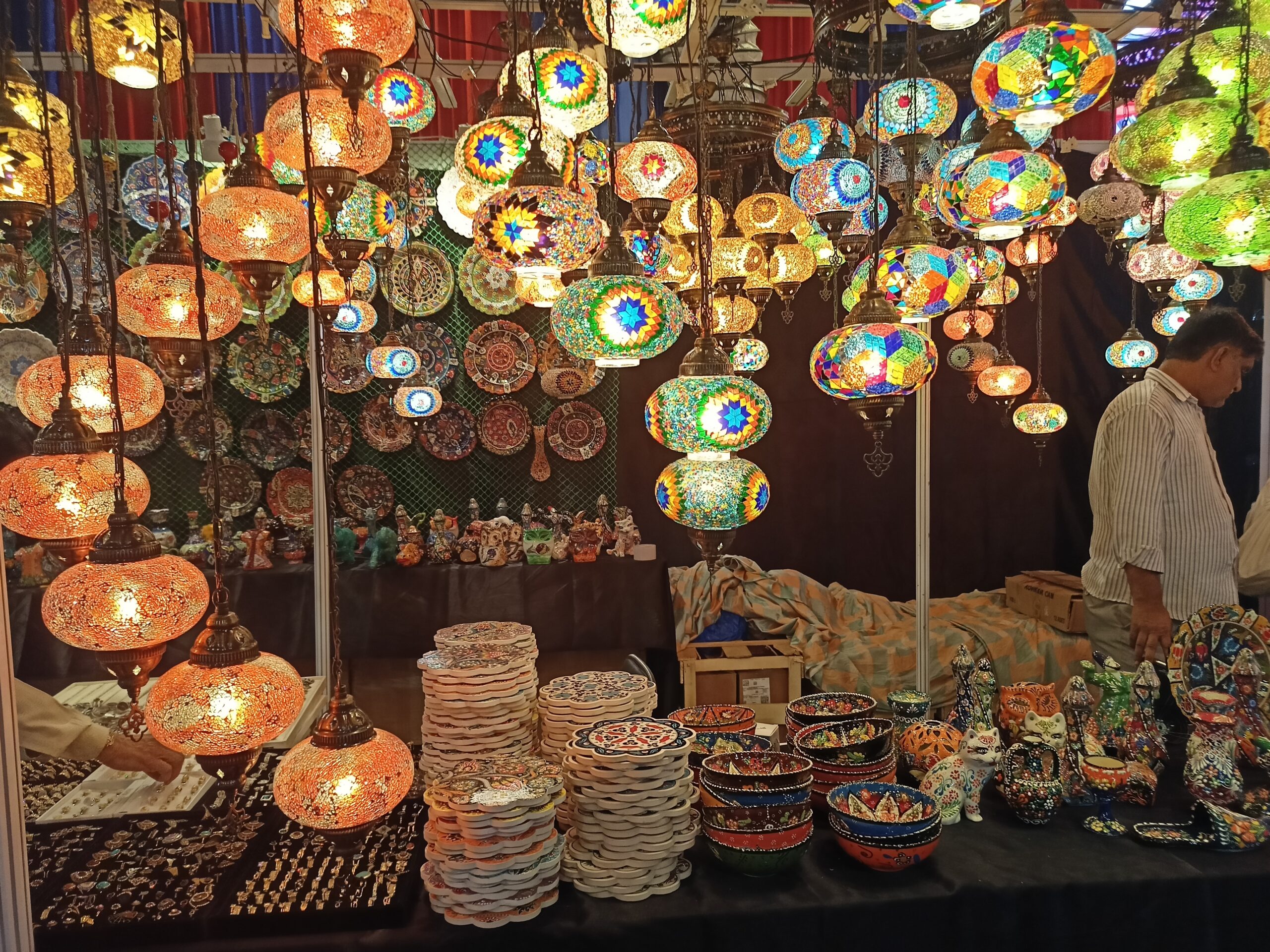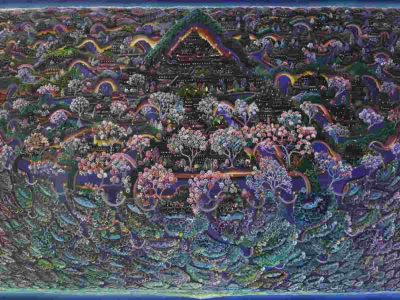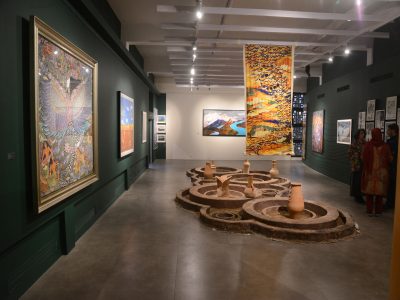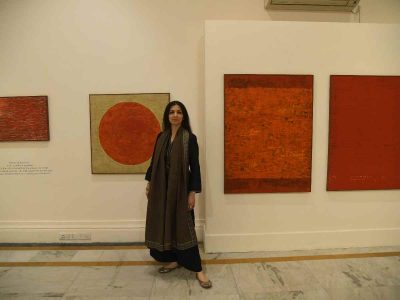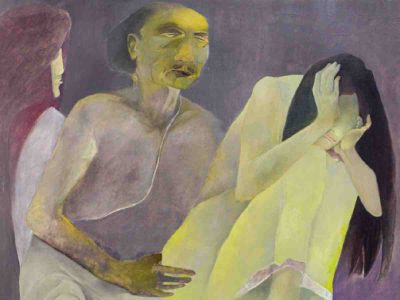In a vibrant celebration of cultural diversity, Delhi often hailed as ‘the city of hearts,’ played host to the grandeur of the Festival of India from October 20 to October 24 at the Major Dhyan Chand National Stadium.
This five-day event celebrated the talents of artisans and artists from India and around the world, providing visitors with a unique opportunity to explore the diverse facets of global culture under one roof.
Culinary delights from around the globe
One of the highlights of the Festival of India was its culinary offerings, providing visitors with a delectable journey through the flavours of India and beyond. From Rajasthani Thali to Punjabi Pakvaans and Delhi’s iconic chaat delicacies, attendees had the opportunity to savour the authentic taste of various regional cuisines.
The event presented a fusion of traditional Indian recipes with a modern twist, featuring Punjabi pakoras, Rajasthani’s Daal Baati, South India’s Sambhar Vada, and the iconic Haleem and Chicken Biryani from Hyderabad. Additionally, Afghanistan’s dry fruit stalls and the aroma of Iran’s famous saffron were a treat to the senses.
Throughout the event, visitors were also treated to mesmerising music and dance performances representing various regions of India. These performances added a dynamic element to the cultural celebration and were enjoyed by attendees of all ages, from children to senior citizens.
Lifestyle and Wellness a priority
The Festival of India was not just about food; it also showcased lifestyle commodities, featuring an array of regional arts and crafts that provided insights into both traditional and contemporary ways of life.
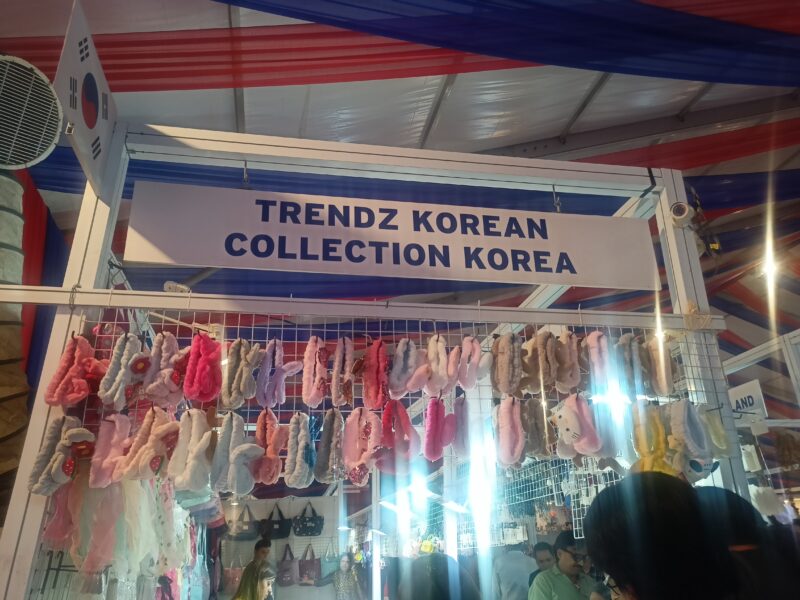
The event displayed wooden furniture, decor pieces carved from marble, and Turkish decor items such as plate wall hangings and chandeliers. Tribal people from different parts of India offered traditional remedies for various ailments, from arthritis to diabetes. Hand-printed and woven bedsheets, carpets, quilts, and other lifestyle items added a touch of elegance to the festival, while hand-woven Iranian carpets and Turkish decor items were particularly captivating.
Fashion and Fabrics Galore
The Festival of India brought fashion and fabric enthusiasts under one roof, offering a glimpse of textile art and fashionable clothing from around the world. Traditional sarees from Bihar, Uttar Pradesh, Assam, and countries like Bangladesh were showcased alongside trendy outfits from Thailand and Korea.
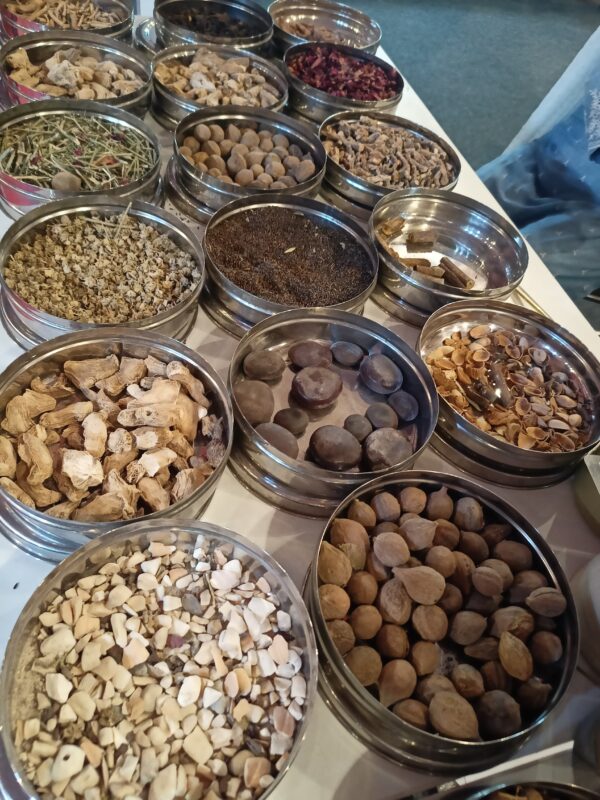
The festival also featured a range of hair and body accessories and dazzling jewellery made from silver, platinum, gold, and gemstones from various regions, including Thailand, Hyderabad, and South Korea.
Devotion Amidst Celebration
The Festival of India coincided with the auspicious occasion of Navratri, Durga Puja and Dussehra, and a towering statue of Goddess Durga was prominently placed at the Major Dhyan Chand National Stadium for prayers and rituals.
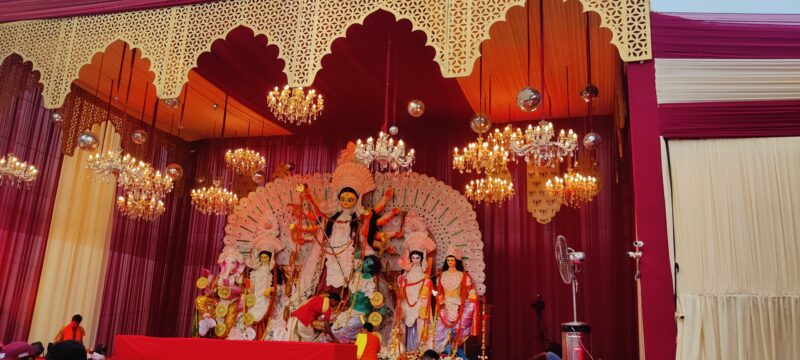
The ceremonies, held in the evenings throughout the celebration, were attended by prominent figures such as the Defence Minister of India, Rajnath Singh, and former cricketer and politician Gautam Gambhir, adding a spiritual dimension to the festivities.
Challenges for Vendors
Despite the jubilation, not all participants in the Festival of India were equally enthused. Many vendors reported losses, mainly due to the high rental costs of their stalls and a seeming lack of interest from buyers. Vendors from other countries, too, were affected by the reduced sales, which made it difficult for them to cover their expenses.
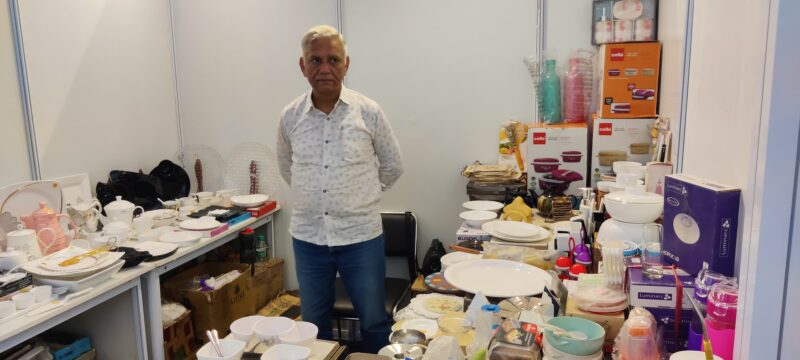
Some shopkeepers cited unfavourable stall locations contributing to low customer traffic.
Certain products, particularly accessories from other countries, were considered overpriced by festival-goers.
Additionally, some attendees from specific regions, like West Bengal, expressed disappointment over the absence of stalls representing their culture and products, especially in comparison to offerings from other states and countries.
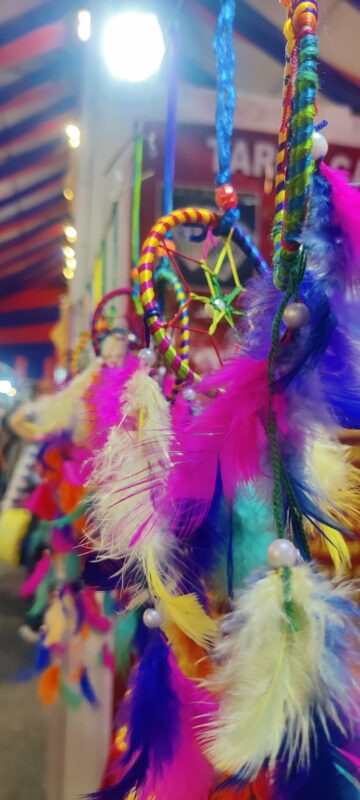
“We saw stalls from every state of the country, even from Iran, Turkey, Afghanistan, and many more countries, but we felt disheartened when we didn’t see a single stall from Kolkata,” said Arushi, a native of West Bengal.
Vijay Kumar, a trader from Punjab, said, “I brought materials worth about Rs 10 lakh here, hoping to sell them, but my hopes have been shattered. I have spent thousands on transportation, stall rent, food, and accommodation, but the response from customers was not very encouraging.”
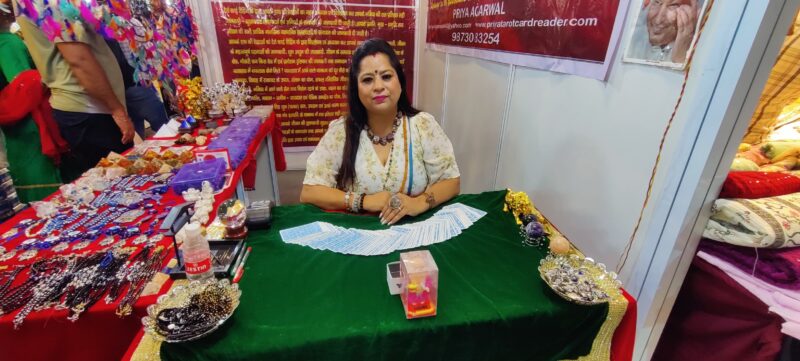
Priya Agarwal, a tarot card reader who had a stall at the fair, said, “The response from people was positive. However, due to the music, visitors didn’t come to our stalls as much.”
Abdullah Bin Ausaf, a ceramic trader from Istanbul, Turkey, expressed his disappointment with the event, calling it a “flop show”. “We are profoundly disappointed by the outcome despite our relentless efforts. Our inventory largely remains unsold, with sales plummeting by 80%. This is undeniably disheartening, especially considering the hefty booth fees we paid. Lack of adequate advertising could be a contributing factor, marking the first time our sales have hit such a low point,” lamented Ausaf.
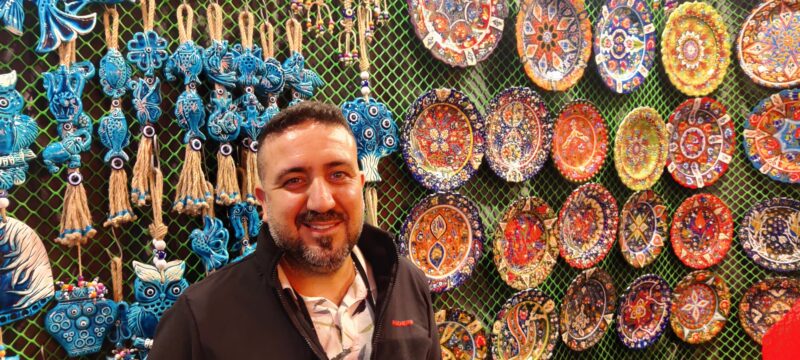
Other traders shared similar sentiments about the fair. Ahmed Khan, a jewellery vendor from Jaipur, said, “We were hoping for better sales, but unfortunately, it didn’t turn out as we anticipated.”
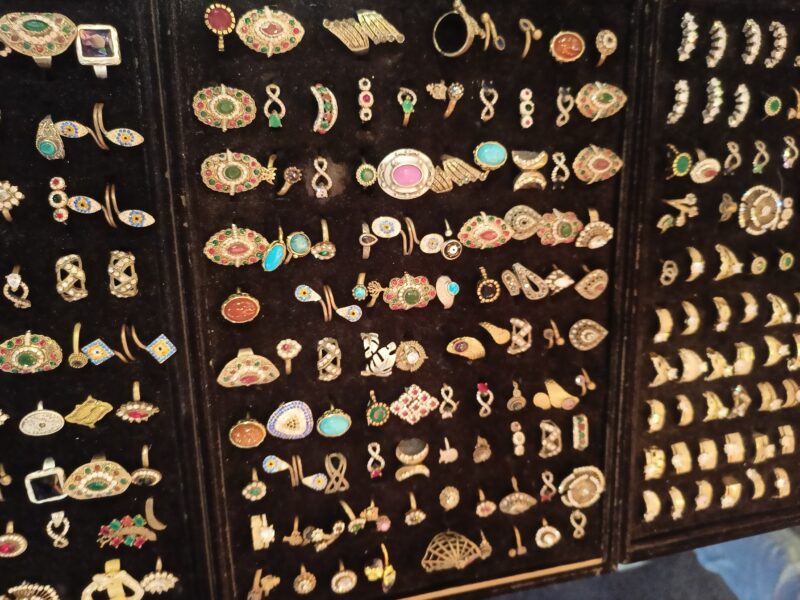
Charisma, an ornament merchant from Thailand, said, “The response from visitors was not as enthusiastic as we had hoped. Many attendees admired our products, but very few made purchases.”

